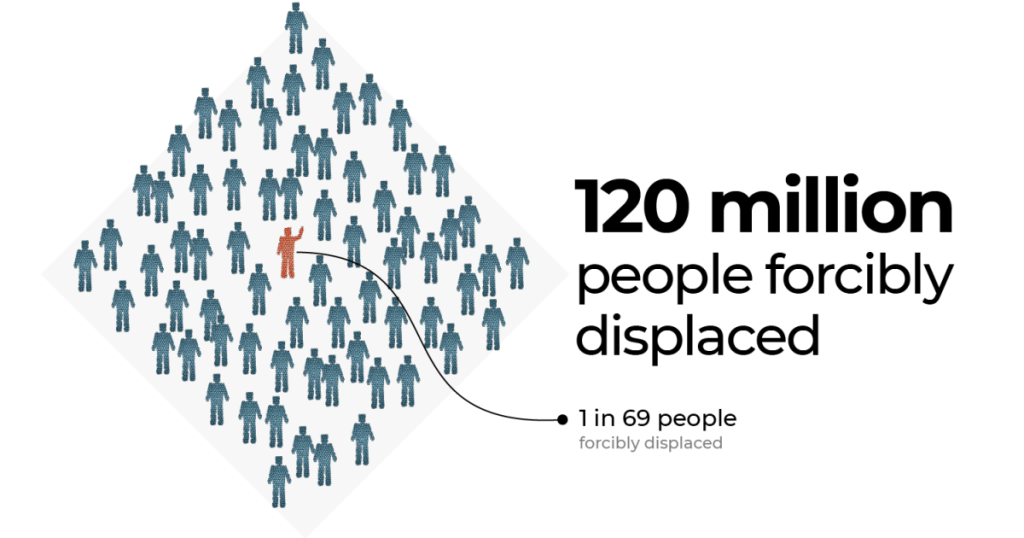The United Nations High Commissioner for Refugees (UNHCR) recently released a report stating that 117.3 million people, or one in 69 individuals worldwide, are forcibly displaced. This is a result of conflict, violence, persecution, and human rights violations. Filippo Grandi, the UN high commissioner for refugees, emphasized the urgent need for the international community to address the root causes of forced displacement, as the number is expected to surpass 120 million by the end of April 2024.
Of the total forcibly displaced population, 68.3 million are internally displaced within their own countries due to conflict or other crises. For example, in Gaza, more than 1.7 million people have been displaced by Israel’s continued assault. The number of refugees who have crossed international borders rose by seven percent in 2023 to 43.4 million, driven by displacement in Sudan and ongoing conflicts in Ukraine and other regions. Additionally, the number of asylum seekers waiting for a decision on their status increased by 26 percent from the previous year, totaling 6.9 million.
The history of refugee crises dates back to the establishment of the Refugee Convention in 1951 to protect the rights of refugees in Europe after World War II. This was later expanded in 1967 to address displacement worldwide. Refugee numbers remained fairly consistent until the early 2000s when conflicts in Afghanistan, Iraq, South Sudan, and Syria led to a significant increase to over 30 million by 2021. The war in Ukraine in 2022 and conflicts in Sudan further exacerbated the refugee crisis, with millions of people forced to flee their homes.
The five countries with the highest number of refugees are Afghanistan, Syria, Venezuela, Ukraine, and Palestine, accounting for 72 percent of all refugees globally. The majority of refugees seek protection in neighbouring countries, with Iran, Turkey, Colombia, Germany, and Pakistan hosting the largest refugee populations. The refugee numbers have increased in major host countries over the last decade, except for Turkey, where there has been a decrease. Germany stands out as a major host country despite not bordering main refugee source countries.
The ongoing displacement crisis has had a devastating impact on the affected populations, with millions of people forced to flee their homes due to conflict, violence, and persecution. The international community must prioritize addressing the root causes of forced displacement and providing support to those in need of protection, including refugees, internally displaced persons, and asylum seekers. Assistance from governments, humanitarian organizations, and individuals is crucial in ensuring the safety and well-being of those affected by forced displacement.


